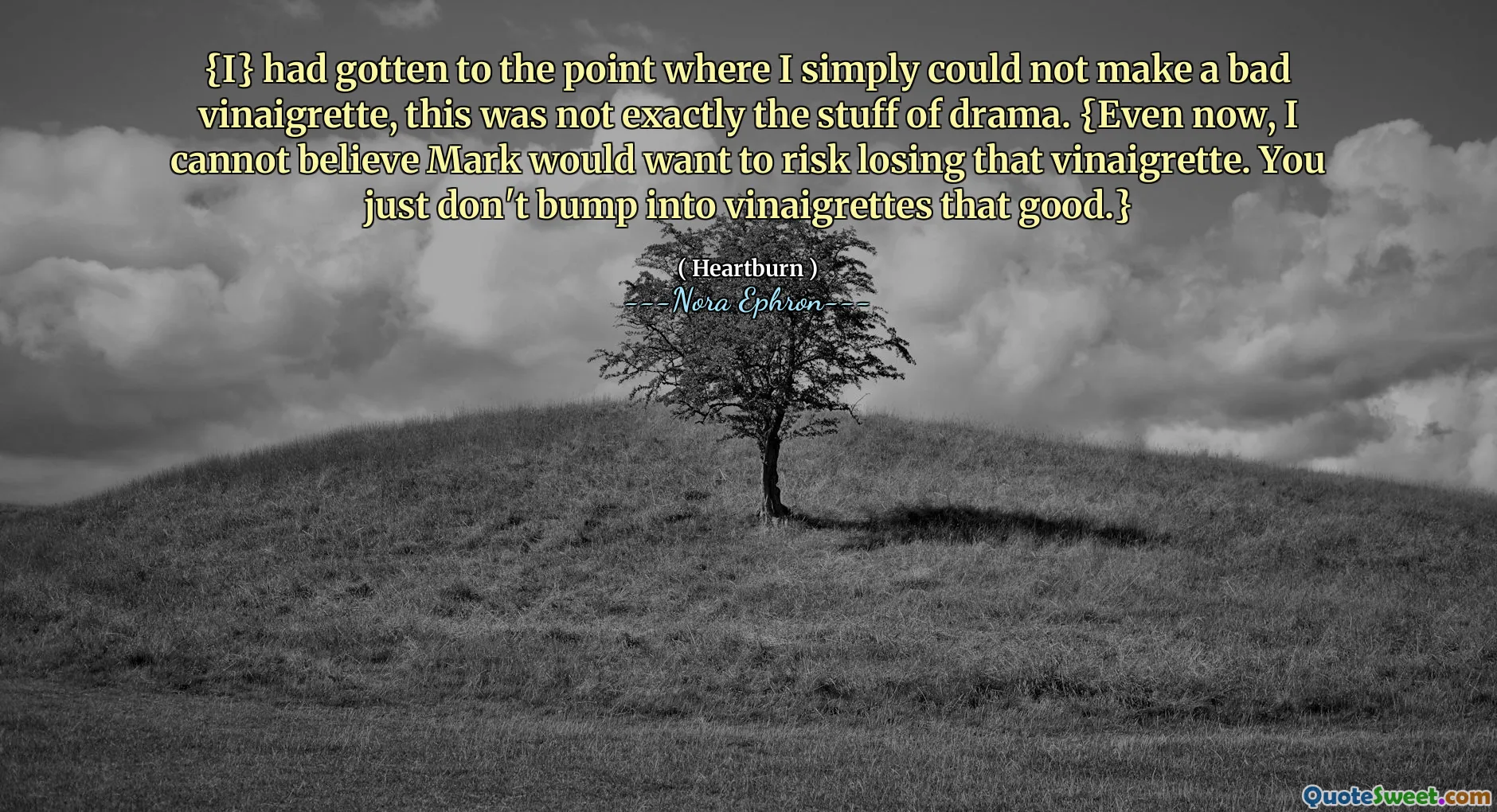
{I} had gotten to the point where I simply could not make a bad vinaigrette, this was not exactly the stuff of drama. {Even now, I cannot believe Mark would want to risk losing that vinaigrette. You just don't bump into vinaigrettes that good.}
In Nora Ephron's "Heartburn," the narrator finds herself in a situation where creating a perfect vinaigrette has become second nature, losing its excitement and sense of drama. This indicates a level of culinary mastery that makes the process feel routine rather than thrilling. The ease with which she can make a vinaigrette highlights her confidence in the kitchen and the art of cooking.
The narrator reflects on the importance and uniqueness of that particular vinaigrette, expressing disbelief that someone would intentionally risk losing something so extraordinary. This sentiment captures the emotional connection people can have with food and the larger themes of loss and value intertwined with personal relationships within the story.











